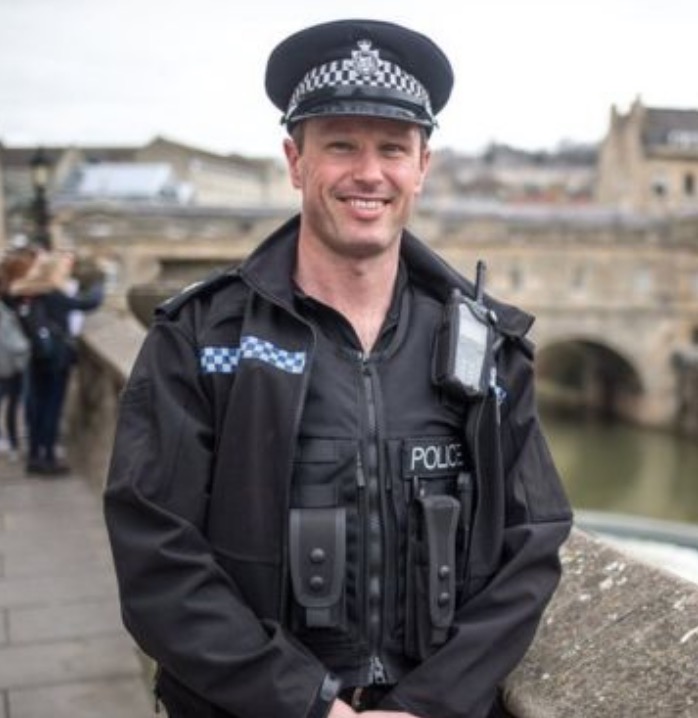Sergeant Adam O’Loughlin has served as police officer for the city of Bath, England, for the past 17 years. Always a stickler for following the rules, he views the law as “black and white.”
But it wasn’t until two years ago that Sgt. O’Loughlin discovered something about himself that helped to explain his rigid approach to his work: he has autism.
In a recent interview with the BCC, O’Loughlin discussed how his diagnosis has helped to shed light on various aspects of his career as an officer.
While driving along his usual patrol route in Bath, O’Loughlin explained how frustrated he used to get when people would break the law right in front of him.
“I’m wearing a uniform, I’m in a police car, why do these people think it’s OK to break the law in front of me?” he exclaimed.
O’Loughlin explained that being a stickler comes naturally to him, and he’s had to work to learn how to let less serious offenses go.
“When I first started, I’d stop people for these kind of things all the time, and whoever was crewed with me would get grumpy,” he said. “Even now, colleagues joke about all this stuff around me affecting me when it doesn’t need to. I get really exercised about it. Every single day, I have to tell myself to let stuff like that go. I just have to breathe and not think about it.”
During the interview, a motorcyclist pulled up beside O’Loughlin’s police car, reporting seeing a man using his phone while driving. But after the driver denied the accusation, O’Loughlin struggled over whether to contact the man’s cell phone provider to investigate the claim further.
“This is a perfect example of something that I find really difficult,” he told BBC. “My natural inclination was to give him a ticket. But I have to remind myself that it’s not black and white. He could lose his job for that, and I haven’t got any evidence. Do we all do things that might not be strictly legal at the time? Probably.”
Sgt. O’Loughlin shared that he experienced a great deal of relief after being diagnosed with autism.
“Telling people I have autism was the best thing I ever did,” he said. “Pretending to be like you guys is exhausting. … Now I don’t feel the need to pretend to be someone else.”
“I’ve found myself in a job that very much fits with what I’m good at, based on my own peculiarities,” he added.
Since finding out he is on the autism spectrum, Sergeant O’Loughlin was promoted to a position that he prefers more. He now spends more of his days at his desk, rather then out in the field.
“I can concentrate for extended periods of time,” he says. “And I can find intel on our computer system much quicker than anyone else can. My mind works in a way that helps me drag that information out. And we try to find where burglary hotspots are — I find that really easy as well.”
O’Loughlin explained why law enforcement positions attract people like him.
“Law enforcement attracts people who are on the spectrum,” he said. “They like the uniform — you get to wear the same thing every day. And you get to enforce the rules.”
The National Police Autism Association in the UK has over 700 members, including Sgt. O’Loughlin. It is difficult, however, to gauge how many on the force actually have autism, as some members join because they have dependents on the spectrum.
Sgt. O’Loughlin knows a senior officer on the same force as him who is also on the autism spectrum. Similarly to O’Loughlin, 52-year-old Nigel Colston served for more than 20 years before he was diagnosed with autism.
Though O’Loughlin admitted that he is still self-conscious about the way he handles things sometimes, he remains just as confident in himself as an officer as he always was.
“I can do this job as well as anyone else,” he said. “I’ve been successful and that’s because I have autism, not in spite of it. And if I’ve done it, other people can too.”
(H/T: BBC)



